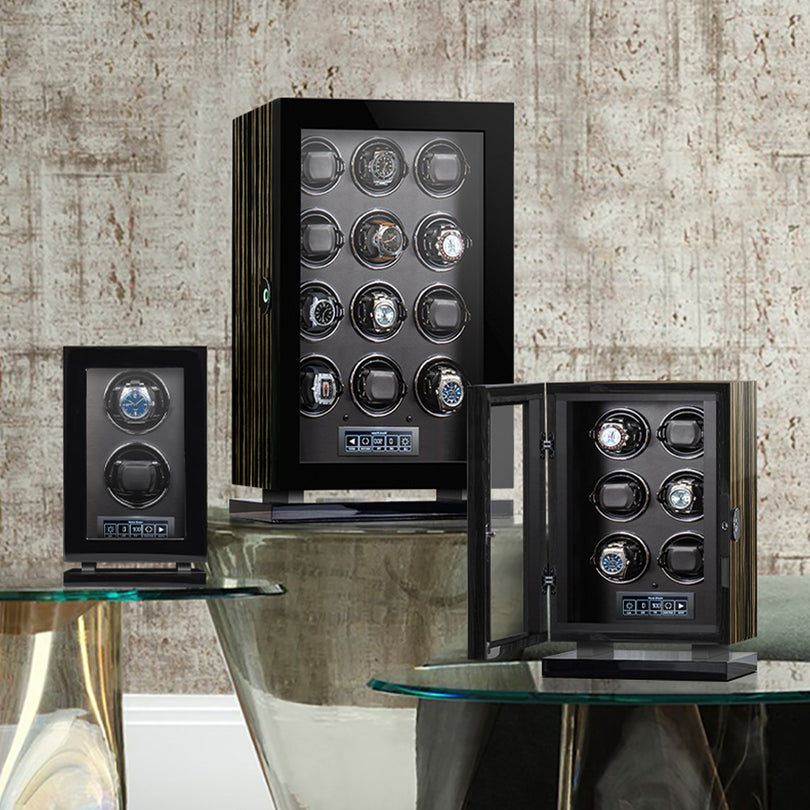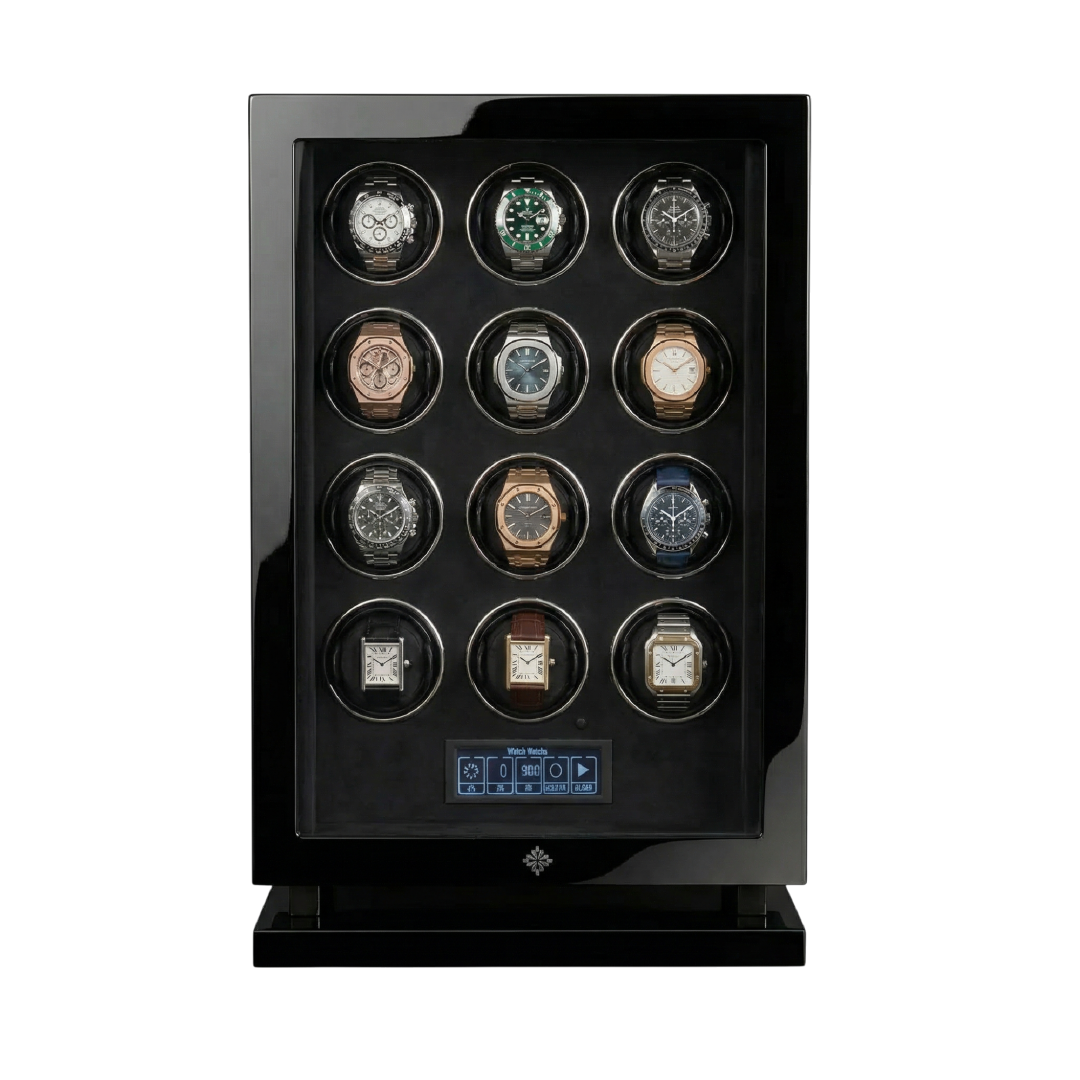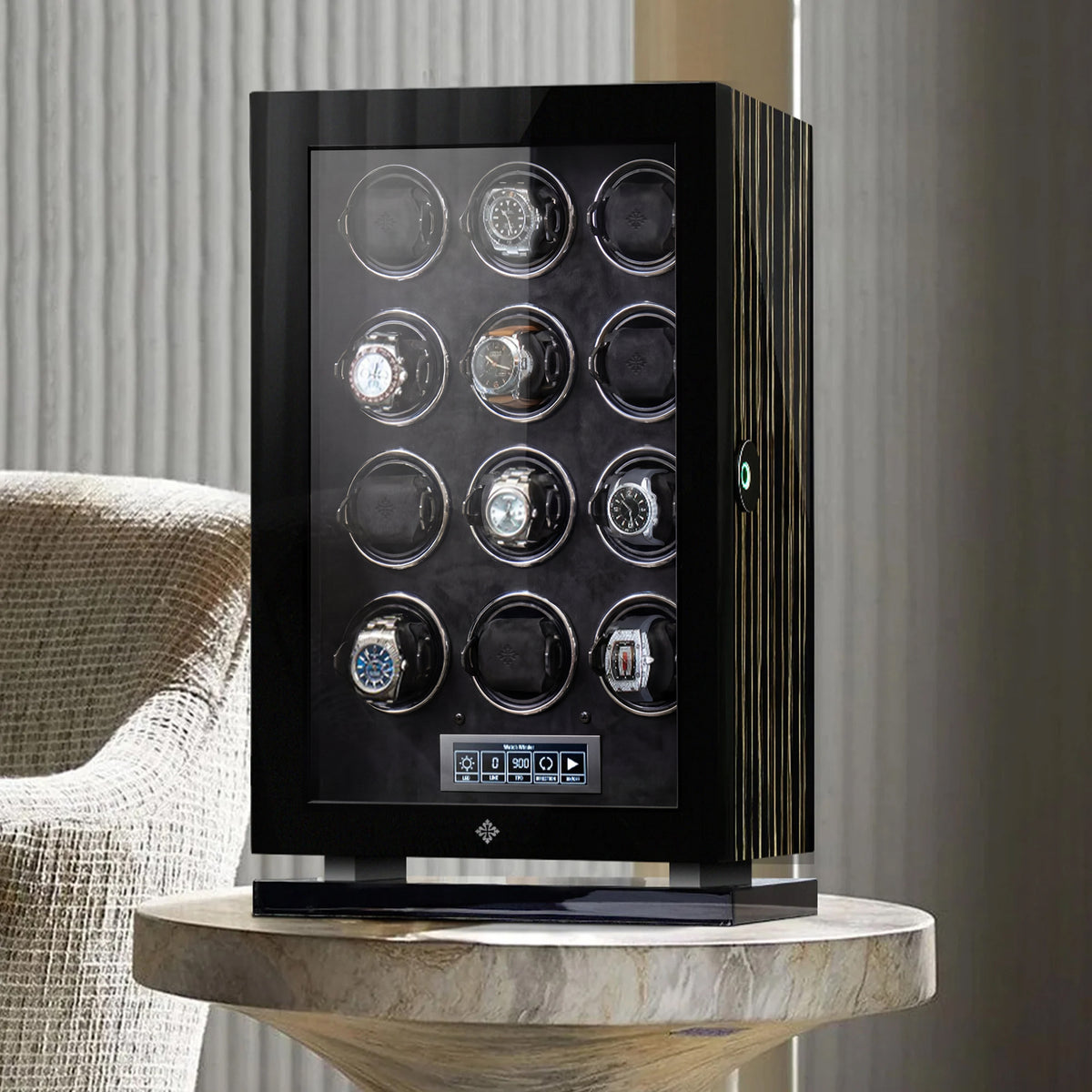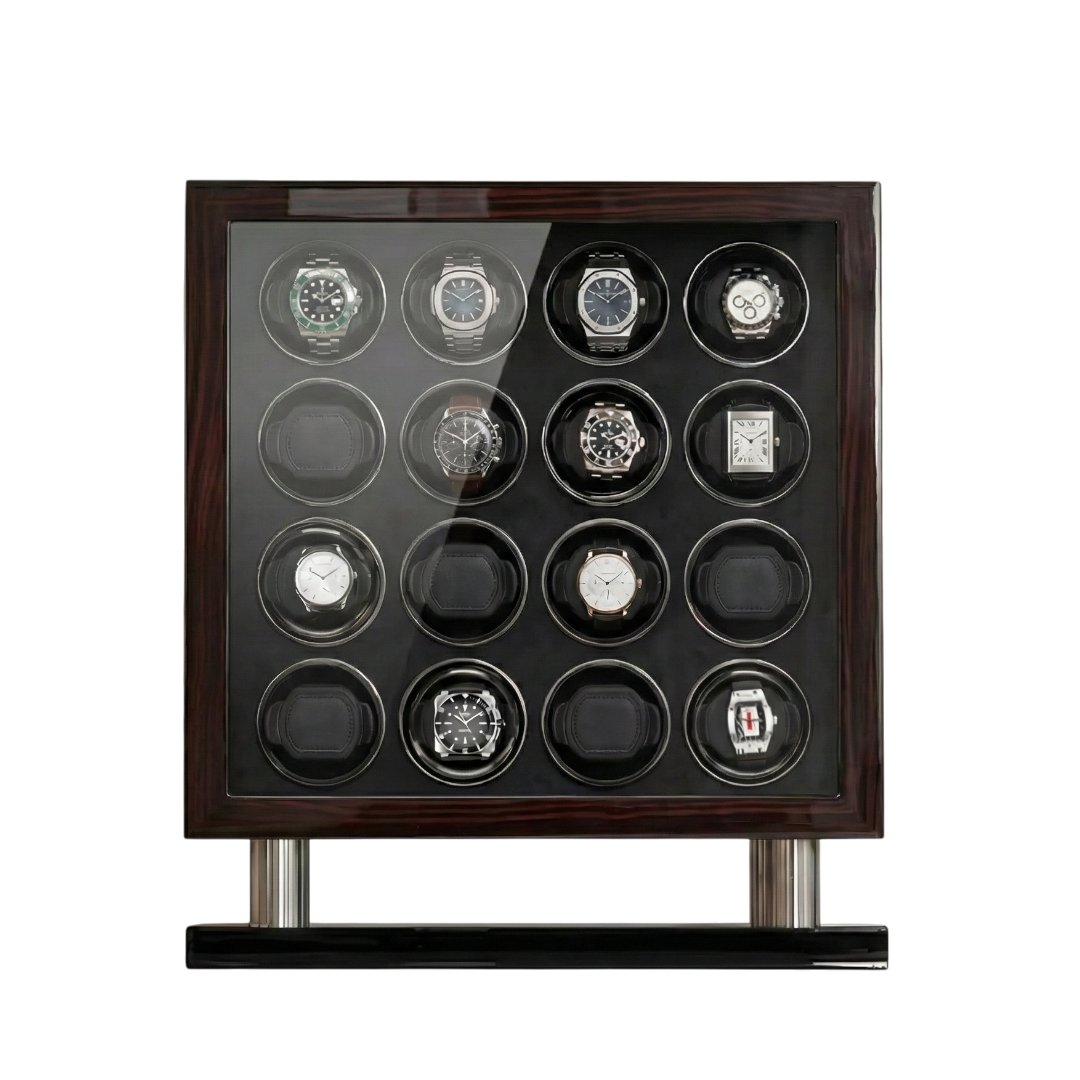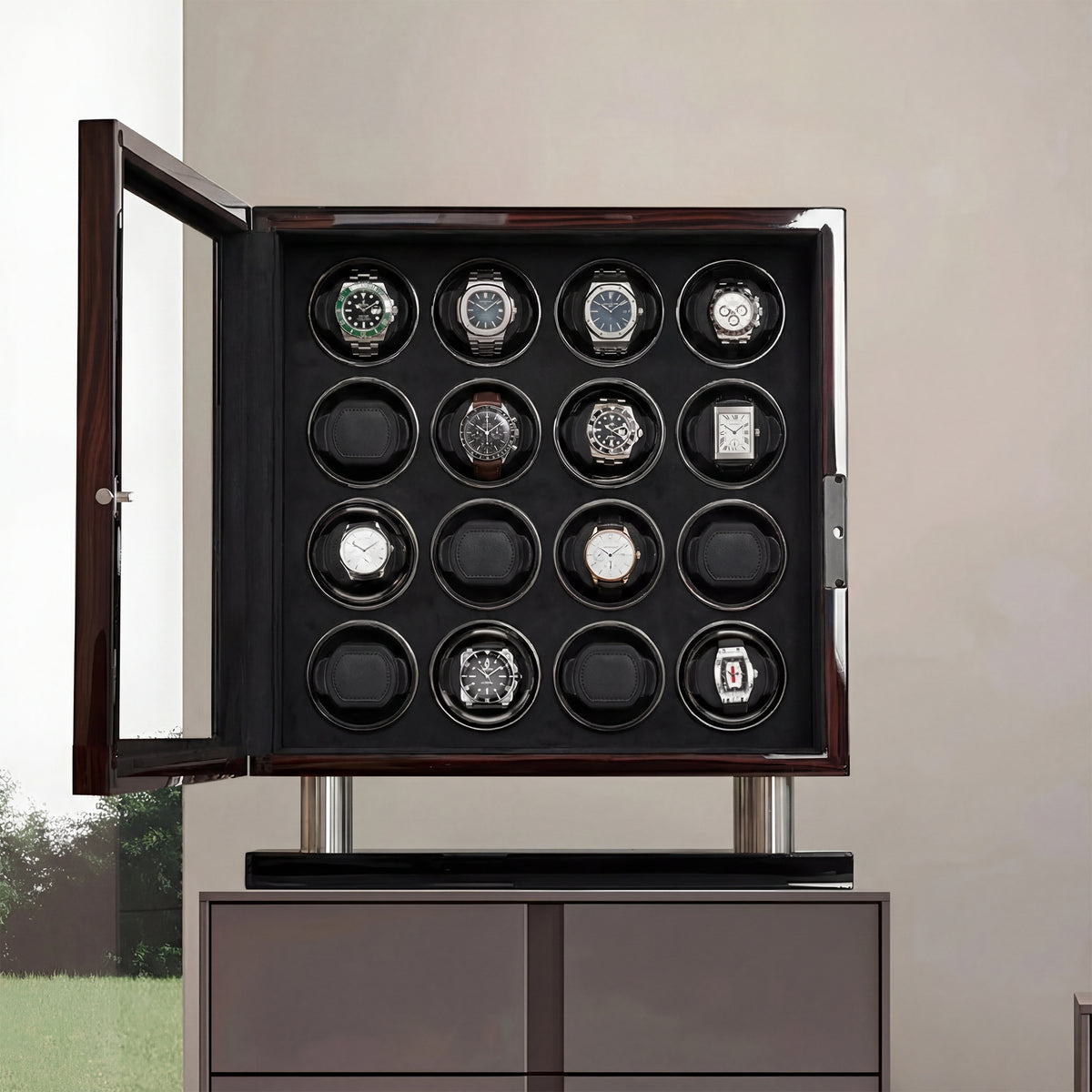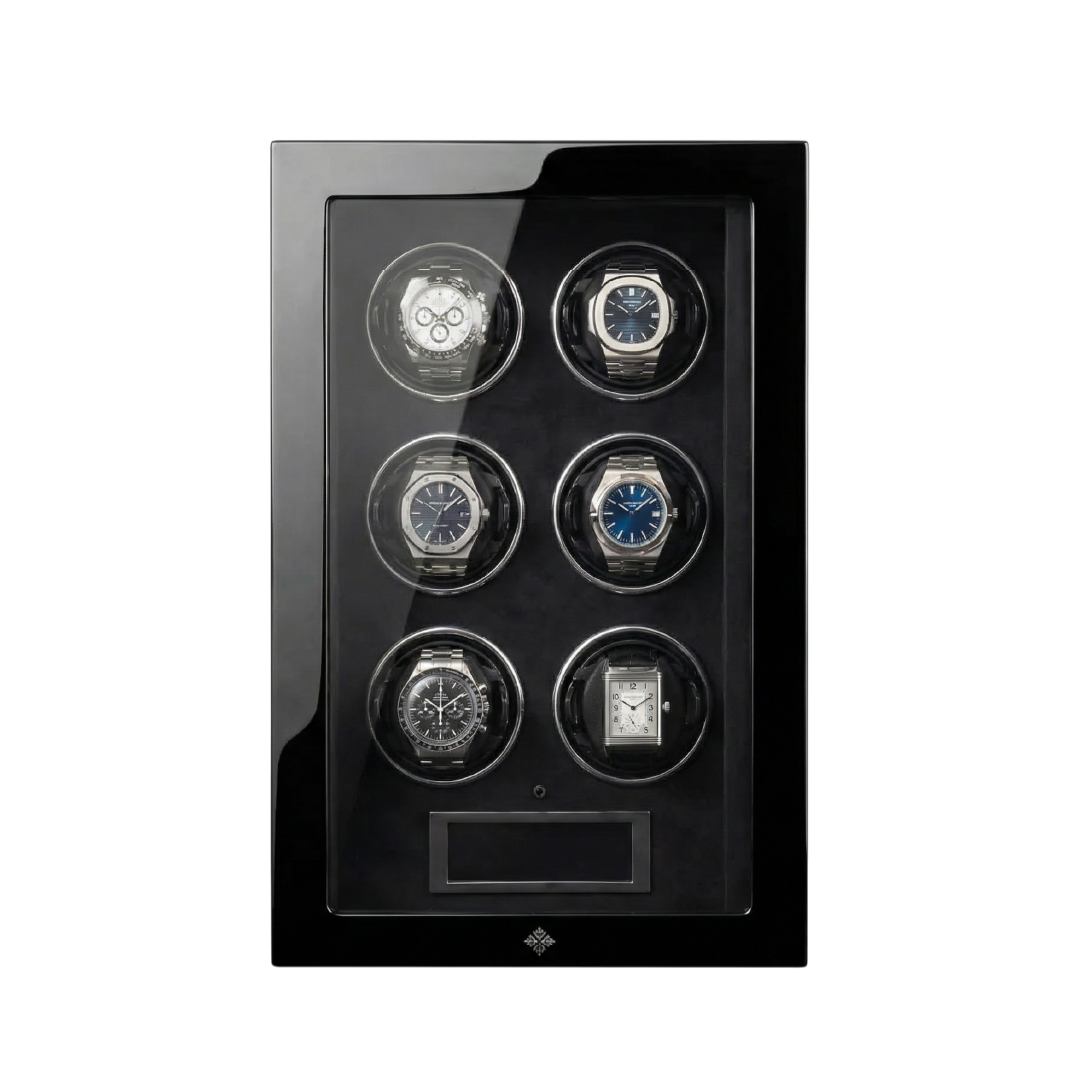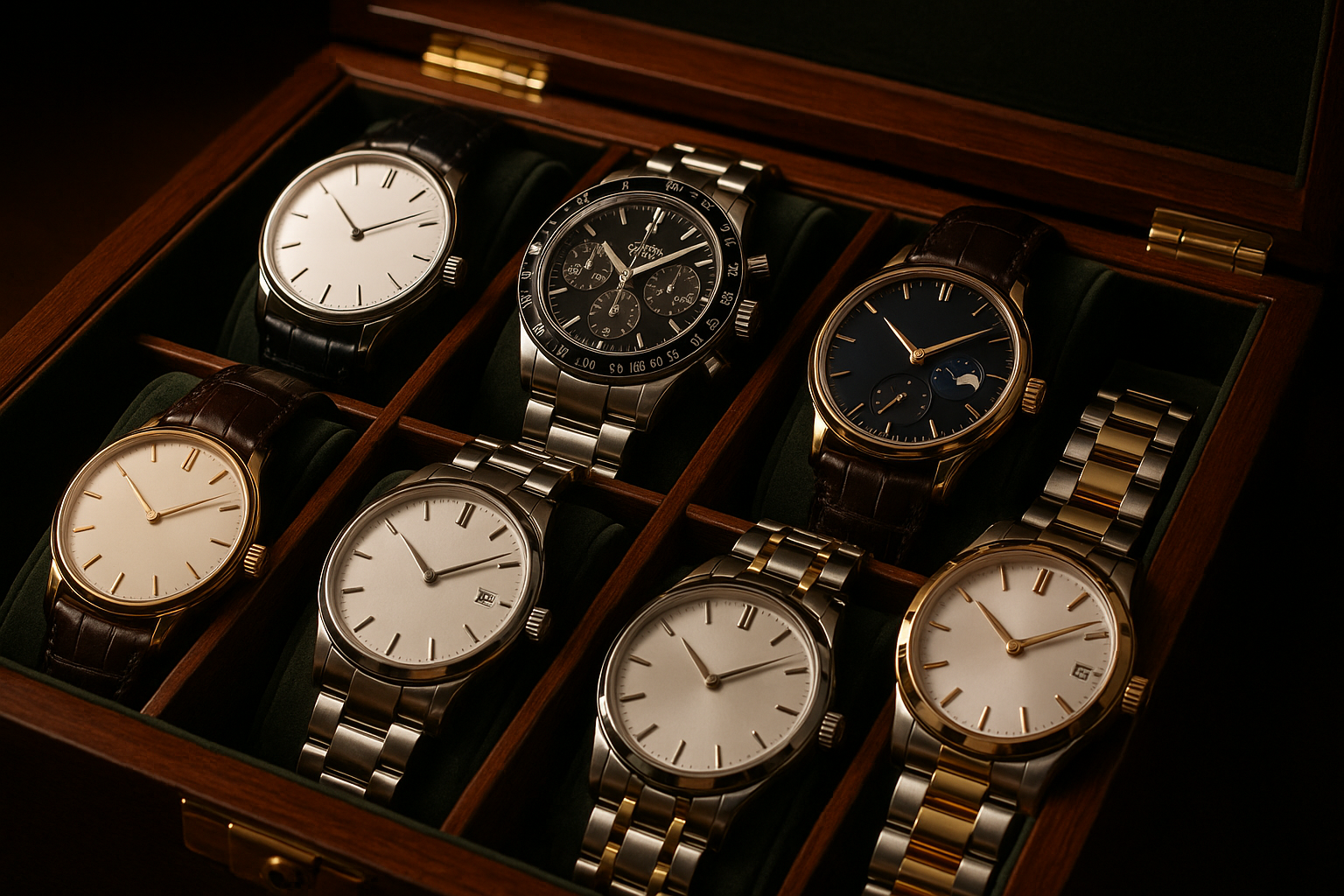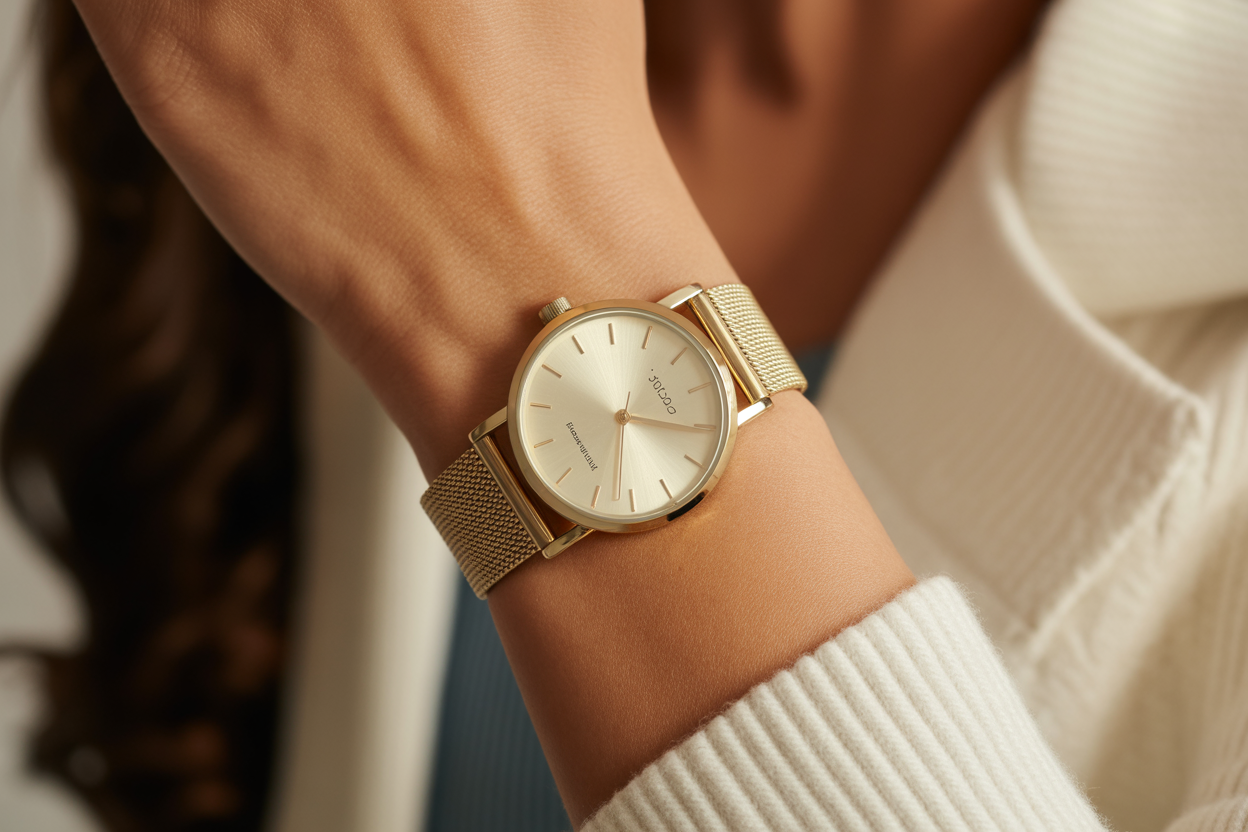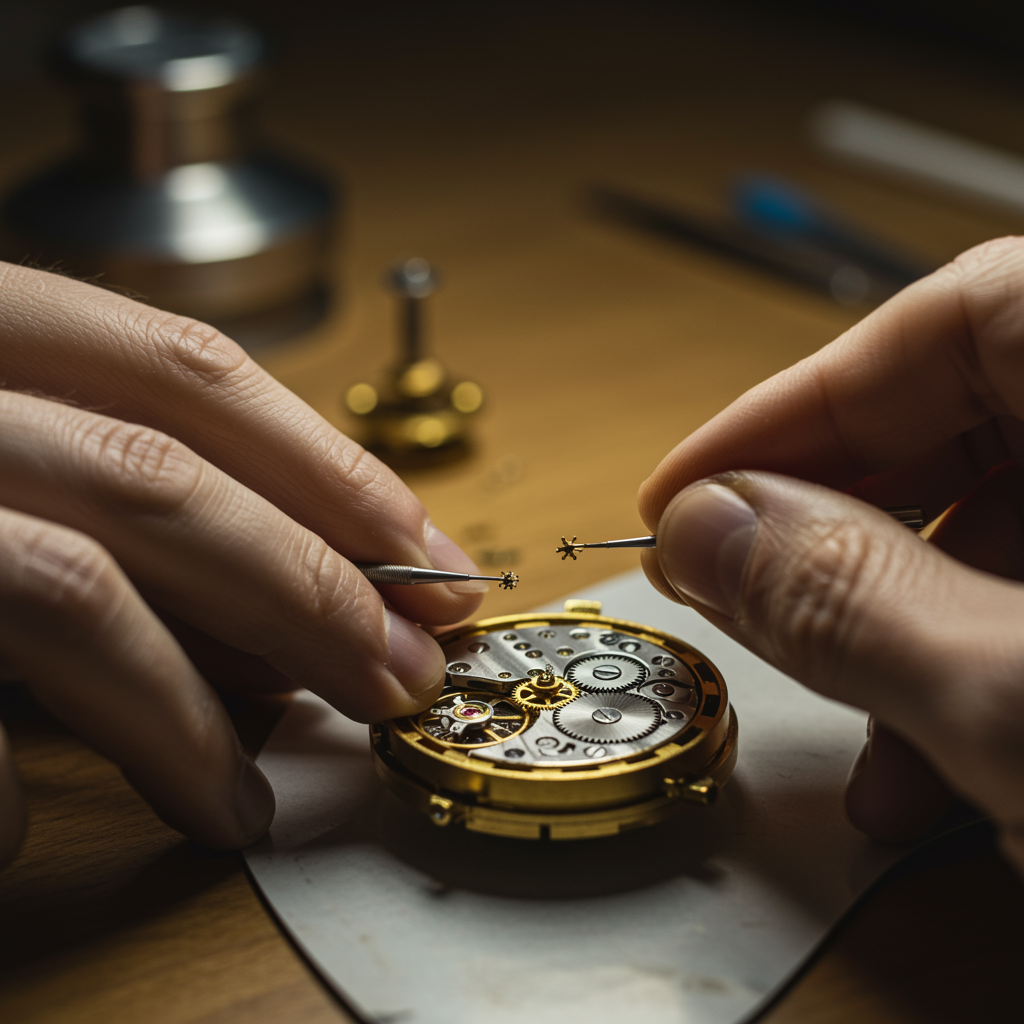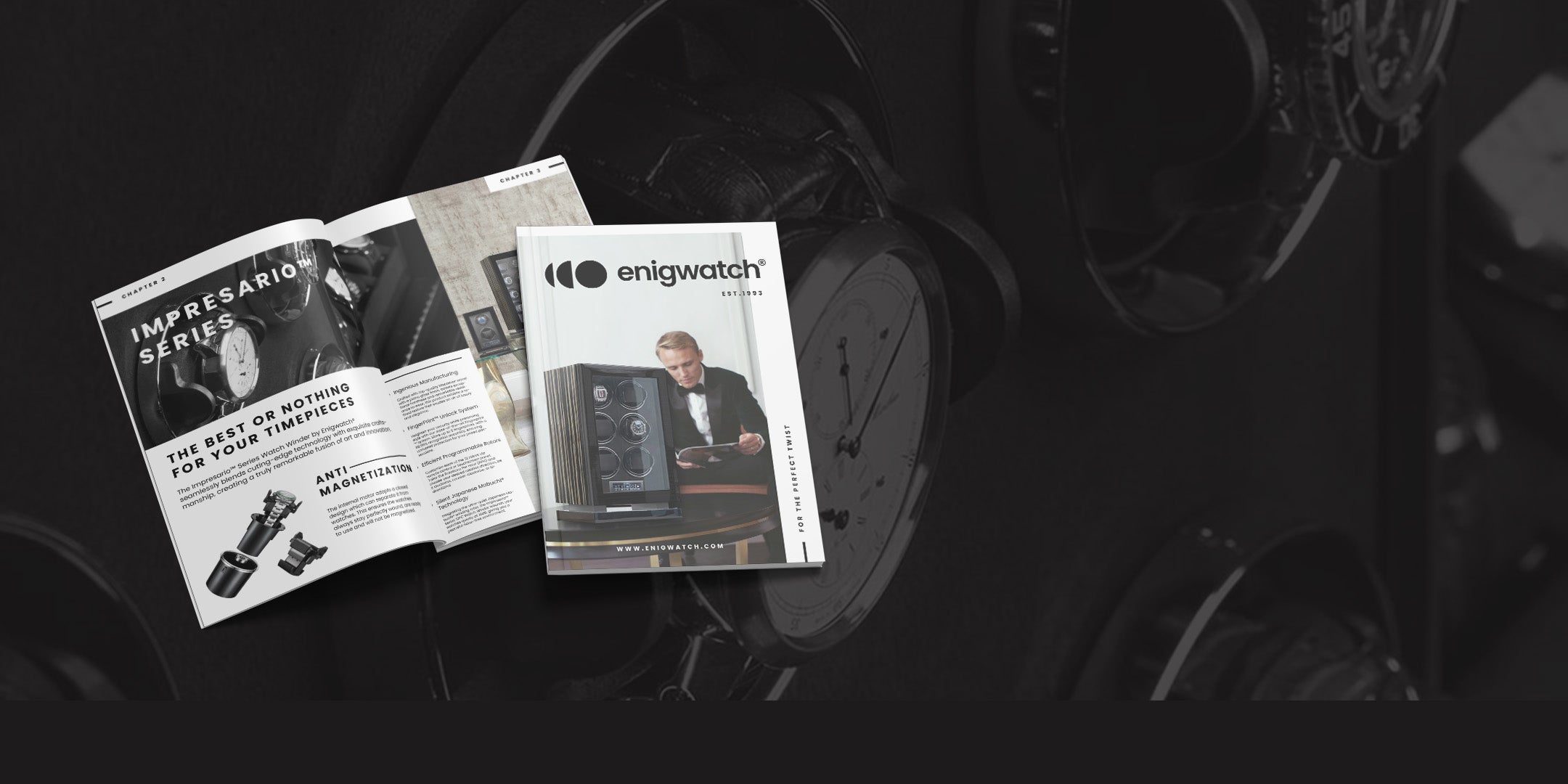Ladies and gentlemen, hold on tight to your watch straps as we embark on a thrilling journey through the timekeeping universe. It's the ultimate horological showdown: IWC vs. Rolex! Buckle up and get ready to witness the clash of two iconic brands as they go head-to-head in a no-holds-barred comparison for the ages.
Picture this: a ring filled with elegance, craftsmanship, and the sheer audacity to tell time in style. In one corner, we have IWC, the legendary Swiss watchmaker with a history steeped in precision and innovation. And in the other corner, we have Rolex, the undisputed heavyweight champion of the luxury watch world, boasting timeless designs and an unparalleled reputation.
But wait, this isn't your typical boxing match. There will be no punches thrown, no knockouts. Instead, we'll be diving deep into the realms of history, design, materials, movements, accuracy, price, and value, all while keeping the tone as engaging and fun as the watches themselves.

Think of it as a battle of styles—a dance-off of horological proportions. It's not just about knowing the time; it's about expressing who you are, making a statement, and letting your wrist do the talking. And, oh boy, do these brands know how to make a statement!
So, whether you're a connoisseur of chronographs or just someone with a fascination for fantastic timepieces, this comparison promises to be a rollercoaster ride filled with surprises, insights, and a healthy dose of wit.
But remember, dear readers, while we're here to have some fun, we'll also be delving into the nitty-gritty details. So buckle up and get ready to be astounded by the fascinating histories behind these brands, the breath-taking designs that will make your heart skip a beat, the cutting-edge materials that bring these timepieces to life, the intricate movements that make them tick, the accuracy that separates the great from the good, the price tags that might leave you gasping for air, and the overall value that goes beyond the mere notion of luxury.
Whether you're Team IWC, cheering for their timeless elegance, or firmly on the side of Rolex, rooting for their understated sophistication, we invite you to join us on this epic adventure through the realms of horological excellence.
So grab your popcorn, put on your favorite timepiece (if you're lucky enough to have one), and let's dive headfirst into the battle of the century: IWC vs Rolex. Who will emerge victorious? Only time will tell!
History: IWC vs Rolex
In the grand tapestry of horological history, both IWC and Rolex have carved out their own unique paths, each with a story that spans decades and showcases their exceptional contributions to the world of watches.
Let's start with IWC, which stands for International Watch Company. Established in 1868 by an American engineer and watchmaker named Florentine Ariosto Jones, IWC set out on a mission to combine American manufacturing techniques with the renowned Swiss craftsmanship. From its humble beginnings in Schaffhausen, Switzerland, IWC quickly gained a reputation for producing timepieces of outstanding precision and innovative design. Over the years, the brand has continued to push boundaries, introducing remarkable complications, such as the Grande Complication and the Da Vinci Perpetual Calendar, cementing its status as a leader in the watchmaking industry.
On the other side of the ring, we have Rolex, a name that needs no introduction. Founded in 1905 by a visionary duo, Hans Wilsdorf and Alfred Davis, Rolex has become a true icon of luxury and prestige. While originally headquartered in London, it was the move to Geneva, Switzerland in 1919 that solidified Rolex's Swiss roots. From the very beginning, Rolex has been a pioneer, introducing several groundbreaking innovations, including the world's first waterproof wristwatch, the Oyster, and the revolutionary Perpetual movement, which provided automatic winding for watches. The brand's commitment to precision and reliability was further highlighted when Rolex became the first watch manufacturer to earn the coveted Swiss Certificate of Chronometric Precision in 1910.
Both IWC and Rolex have left an indelible mark on the watchmaking landscape, but they have done so in their own distinct ways. IWC, with its fusion of American ingenuity and Swiss artistry, has appealed to those seeking a blend of tradition and innovation. Meanwhile, Rolex has established itself as the epitome of luxury and timeless design, attracting individuals who appreciate understated sophistication and unrivaled craftsmanship.
You might also like: Protect Your Investment: The 3 Best Watch Winders for Your Rolex Collection (2023 Review)
Design: IWC vs Rolex
IWC embraces a design philosophy that seamlessly combines classic elements with modern touches. The brand takes pride in crafting timepieces that radiate sophistication and refinement, catering to those who appreciate a harmonious blend of tradition and contemporary aesthetics. Whether it's the bold dials and distinctive crowns of their iconic Pilot's watches, the clean and minimalist look of the elegant Portugieser line, or the sporty yet refined designs of the Aquatimer collection, IWC offers a diverse range of designs to suit different tastes and occasions.
On the other hand, Rolex is renowned for its distinct and instantly recognizable design language. The brand has perfected the art of creating watches that are enduring and versatile, suitable for any setting. The iconic Oyster case, known for its smooth lines and robust construction, has become a hallmark of Rolex design. From the timeless Datejust with its fluted bezel and Jubilee bracelet to the sporty Submariner with its unidirectional rotating bezel, Rolex watches exude an air of understated luxury that effortlessly transitions from the boardroom to a night out on the town.
You might also like: Omega vs Rolex: A Battle of the Luxury Watch Brands
Materials: IWC vs Rolex

IWC utilizes a diverse range of materials to bring their watches to life. Stainless steel is a popular choice, offering a perfect balance of strength and versatility. IWC also embraces the use of titanium, a lightweight and robust material that enhances comfort without compromising durability. For those seeking a touch of luxury, IWC incorporates precious metals like gold and platinum, elevating the aesthetic appeal and adding a sense of exclusivity to their timepieces. The brand's dedication to craftsmanship extends to the straps as well, with options including high-quality leather and innovative rubber materials, providing both style and comfort for every occasion.
Rolex, known for its unwavering commitment to quality, utilizes specific materials to ensure the utmost performance and reliability of its watches. The brand is renowned for its use of 904L stainless steel, a highly corrosion-resistant alloy that is more resistant to wear and tear than traditional stainless steel grades. This material not only enhances the longevity of the watch but also maintains its luster and appearance over time. Rolex also offers timepieces in precious metals such as gold and platinum, showcasing their expertise in luxury watchmaking. Furthermore, their bracelets and straps, including the iconic Oyster and Jubilee bracelets, are meticulously crafted from high-quality materials, combining comfort and durability in equal measure.
You might also like: A Full Comparison of Rolex vs Breitling: Which One is Better?
Movement: IWC vs Rolex
When it comes to movement, IWC and Rolex are renowned for their dedication to precision, reliability, and innovative horological engineering. Each brand has its own approach to creating exceptional movements that power their timepieces.
IWC prides itself on its in-house movements, which are carefully crafted to combine traditional watchmaking techniques with cutting-edge technology. The brand's skilled artisans and engineers work in harmony to develop movements that uphold the highest standards of accuracy and performance. IWC movements often feature intricate complications, such as chronographs, perpetual calendars, and tourbillons, showcasing the brand's expertise in pushing the boundaries of mechanical watchmaking. With a commitment to precision, IWC meticulously tests and adjusts its movements to ensure optimal functionality, resulting in timepieces that are not only beautiful but also highly reliable.
Rolex, too, has established itself as a leader in the field of movement innovation. The brand is known for its robust and precise in-house movements, often referred to as "calibers." Rolex movements are engineered to meet the highest standards of chronometric performance, surpassing the accuracy requirements of the official COSC certification. The brand's dedication to precision is exemplified by its patented perpetual movement, which introduced the concept of self-winding and revolutionized the watch industry. Rolex movements undergo rigorous testing and refinement, guaranteeing exceptional reliability and longevity.
Both IWC and Rolex prioritize the craftsmanship and functionality of their movements, ensuring that each timepiece performs flawlessly. Whether it's IWC's blend of tradition and technology or Rolex's unwavering commitment to precision, watch enthusiasts can expect watches with movements that have been meticulously crafted and tested to provide accurate timekeeping.
Accuracy: IWC vs Rolex
IWC is known for its commitment to precision and attention to detail. The brand's in-house movements undergo rigorous testing and adjustment processes to ensure optimal performance. IWC often exceeds the accuracy requirements set by the Contrôle Officiel Suisse des Chronomètres (COSC), an independent Swiss organization that certifies the precision of watch movements. This dedication to accuracy is evident in IWC's commitment to creating timepieces that reliably keep time, offering wearers the confidence of knowing that their watch will consistently deliver accurate readings.
Rolex, with its focus on precision and chronometric performance, has become synonymous with accuracy. Rolex movements are meticulously crafted and subjected to stringent testing at the brand's in-house laboratories. In addition to the COSC certification, Rolex subjects its watches to further tests after the movements are cased, earning them the Superlative Chronometer certification. This certification guarantees that a Rolex watch meets stringent accuracy standards of -2/+2 seconds per day, exceeding the expectations of the industry. Rolex's commitment to precision ensures that wearers can rely on their watches to maintain accurate timekeeping in any situation.
You might also like: Real Rolex vs Fake: 5 Ways to Spot the Difference (2023 Review)
Price: IWC vs Rolex

IWC offers a range of watches that cater to different budgets, making their timepieces relatively more accessible compared to Rolex. While IWC does have entry-level models with more affordable price points, their watches still embody the brand's commitment to quality and craftsmanship. As you move up the range and explore their complications and limited editions, the prices naturally increase, reflecting the added complexity and exclusivity.
On the other hand, Rolex has positioned itself as an emblem of high-end luxury, and its watches generally command higher price points. The brand's reputation for exceptional quality, iconic designs, and meticulous attention to detail contributes to the premium pricing. Additionally, Rolex's dedication to using high-grade materials, such as their proprietary 904L stainless steel and precious metals like gold and platinum, further adds to the price of their timepieces.
You might also like: Cartier vs Rolex: A Battle of High-End Watch Brands
Value: IWC vs Rolex
When considering the value of a watch, it goes beyond just the price tag. The value lies in the combination of craftsmanship, heritage, reliability, and the intangible qualities that make a timepiece truly special. Both IWC and Rolex offer significant value in their own ways.
IWC brings tremendous value through its rich heritage, commitment to innovation, and exceptional craftsmanship. The brand has a long history of producing watches that are not only accurate and reliable but also beautifully designed. Owning an IWC timepiece grants you access to a legacy of Swiss watchmaking artistry. Moreover, IWC emphasizes sustainability and social responsibility, ensuring that their watches are crafted with a conscious approach. This added value goes beyond the wrist, allowing owners to align with a brand that shares their values.
Rolex, with its iconic status and unwavering commitment to quality, represents a timeless symbol of success and achievement. The brand's reputation for precision, reliability, and durability adds significant value to its timepieces. Owning a Rolex watch signifies a level of sophistication and prestige that transcends the realm of horology. Rolex watches have also proven to be solid investments, as their enduring popularity and limited production numbers contribute to their potential appreciation in value over time.
Both IWC and Rolex provide exceptional after-sales service, including warranties and servicing options, which further enhance the value of their watches. This ensures that owners can enjoy their timepieces for years to come with the assurance of ongoing support and maintenance from the brands themselves.
Conclusion
In conclusion, the comparison between IWC and Rolex has revealed two exceptional watch brands with their own distinct identities and strengths. IWC impresses with its blend of classic elegance and modern innovation, offering a range of timepieces that cater to various tastes and occasions. With a rich heritage, commitment to precision, and a conscious approach to sustainability, IWC provides a compelling choice for those seeking sophistication and refined craftsmanship.
On the other hand, Rolex stands as an icon of luxury and timeless design, renowned for its enduring reliability and meticulous attention to detail. The brand's unwavering commitment to quality, exceptional accuracy, and prestigious status make Rolex a symbol of success and a statement of refined taste. While Rolex watches command higher price points, they represent an investment in a piece of horological excellence that transcends trends and holds its value over time.
In the end, the choice between IWC and Rolex comes down to personal preferences, budget considerations, and the desired statement on the wrist. Both brands offer exceptional timepieces that exemplify the artistry and craftsmanship of Swiss watchmaking, ensuring that the wearer not only tells time with precision but also wears a symbol of enduring elegance.

